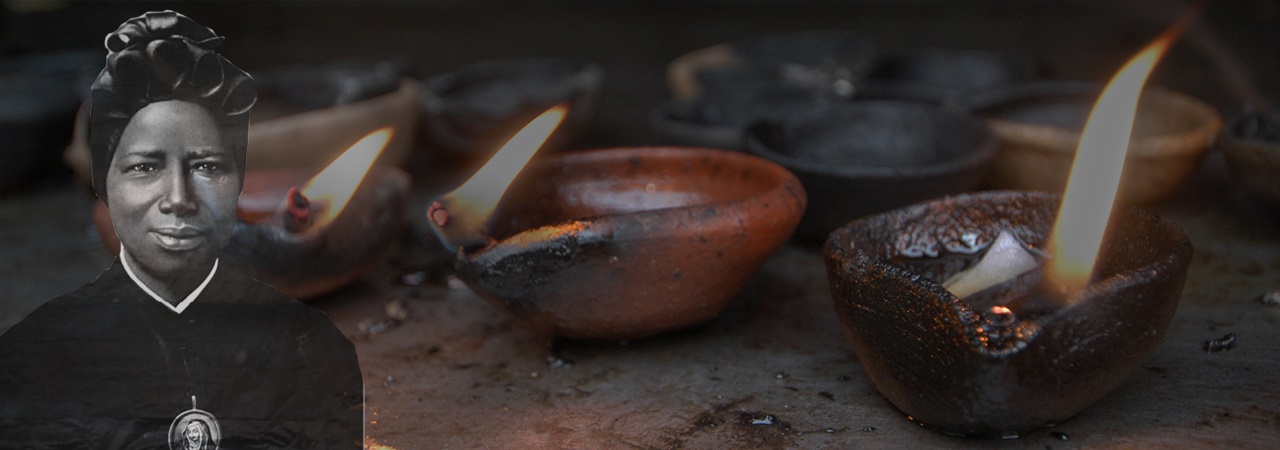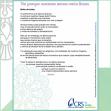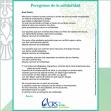

St. Josephine Bakhita: Her Light Still Shines Brightly
As she lay dying in 1947, St. Josephine Bakhita cried out, “Loosen the chains…they are so heavy.” The former slave’s words remain hauntingly relevant in a world where 21 million men, women and children suffer as modern-day slaves. But Bakhita’s story is more than one of suffering. As we fight to end human trafficking, it’s an inspiring example of resistance, solidarity and justice.
Slavery caused her to forget her name, but not her dignity
Born in Sudan in 1869, St. Josephine Bakhita was kidnapped and sold into slavery by age 9. She was so traumatized by the experiences of her childhood that she forgot her name. Her captors called her “Bakhita,” which means “fortunate.” For the next 10 years, she was anything but lucky.
Bakhita was traded several times and suffered terribly at the hands of her owners. In addition to being ‘branded’ more than 100 times, she was beaten regularly. In her autobiography, Bakhita said, "I do not recall a day that passed without some wound or other. When a wound from the whip began to heal, other blows would pour down on me."
Eventually, Bakhita’s fifth owner brought her to Italy and gave her to the Italian merchant Augusto Michielli. She worked as a slave for Michielli’s daughter Mimmina, who was attending a convent school run by the Canossian Sisters. Bakhita attended religious education classes with Mimmina, and was inspired to join the Church. She took the name Josephine at her Baptism, but remained in captivity.
Resistance plus solidarity equals freedom
When it was time to return to Mimmina’s home, Bakhita did not want to leave the school. With the support of the Canossian Sisters and the atriarch of Venice, she resisted, taking her case to court. Since Italian law did not recognize slavery, the court declared Bakhita had been free the entire time she was in Italy. She joined the convent and devoted the next 50 years of her life to caring for others.
In 2000, she was canonized by St. John Paul II, and the once unnamed slave child became Saint Josephine Bakhita. During the Mass, he said, “In St. Josephine Bakhita, we find a shining advocate of genuine emancipation. The history of her life inspires not passive acceptance, but the firm resolve to work effectively to free girls and women from oppression and violence, and to return them to their dignity in the full exercise of their rights.”
Her feast day February 8, which is also the Catholic Church’s International Day of Prayer and Awareness Against Human Trafficking.
Why Bakhita’s story matters more than ever
Bakhita’s story highlights the complexities of human trafficking. While the Canossian Sisters fought for her freedom, they were also accomplices in her enslavement. Are we also accomplices? As members of a society where trafficking thrives, the chains are in our hands.
Catholic Relief Services and the United States Conference of Catholic Bishops are working to lead the way to end human trafficking by supporting migrants and refugees who are vulnerable. We encourage you to take a deeper look at the economic structures and social norms are enabling human trafficking. And we invite you to join us in taking action against this heinous crime by supporting migrant and refugee families around the world. Together, we can “loosen the chains” and ensure that no one feels the pain of slavery again.




